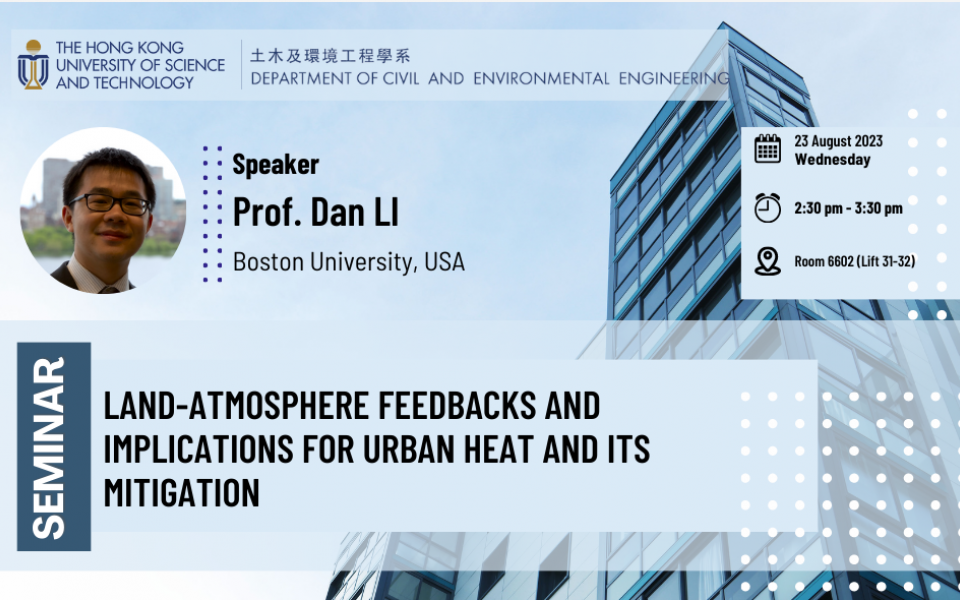Civil Engineering Departmental Seminar - Land-atmosphere feedbacks and implications for urban heat and its mitigation
Supporting the below United Nations Sustainable Development Goals:支持以下聯合國可持續發展目標:支持以下联合国可持续发展目标:
Land-atmosphere feedbacks and implications for urban heat and its mitigation
As the climate warms and as the urban population continues to increase, heat becomes one of the most pressing environmental issues in cities. To quantify the biophysical processes controlling urban surface and near-surface air temperatures and to assess the effectiveness of urban heat mitigation strategies, it is important to understand the role of land-atmosphere feedbacks. In this talk, I will first show that a linearized surface energy balance equation provides a baseline framework for understanding surface temperature dynamics at long-term time scales. I will then discuss the role of surface-layer feedbacks and boundary-layer feedbacks in modulating the responses of urban surface and near-surface air temperatures to various forcing. The importance of better parameterizing turbulent heat transfer in the coupled urban-atmosphere system will be highlighted.
Dr. Dan Li is an Associate Professor in the Department of Earth and Environment at Boston University. He completed his Ph.D. in 2013 in the Department of Civil and Environmental Engineering at Princeton University. Prior to joining Boston University in 2016, he was a postdoctoral research associate in the Program of Atmospheric and Oceanic Sciences at Princeton University. His research focuses on improving the understanding of the dynamics and thermodynamics of the atmospheric boundary layer and applying the knowledge to addressing real world sustainability challenges. He is the recipient of Humboldt Fellowship for Experienced Researchers from the Alexander von Humboldt Foundation, and the 2022 Timothy Oke Award for Original Research in the Field of Urban Climatology from the International Association for Urban Climate.
